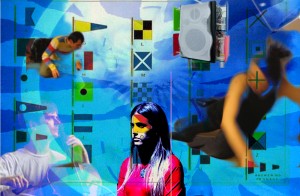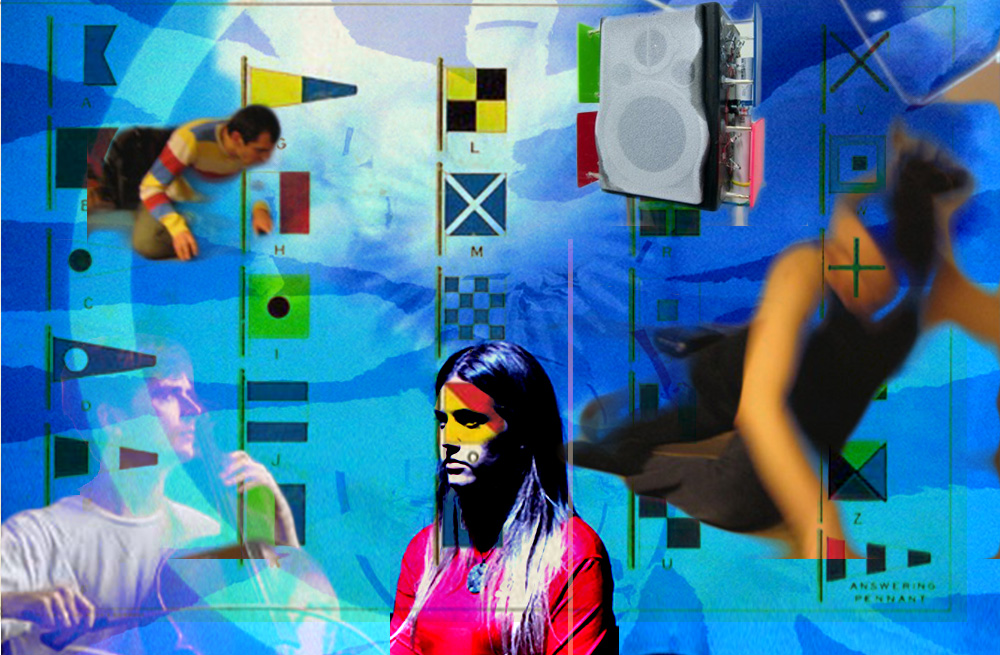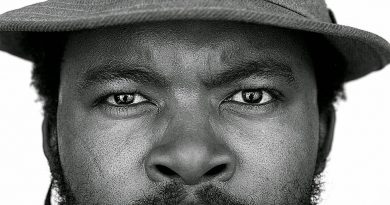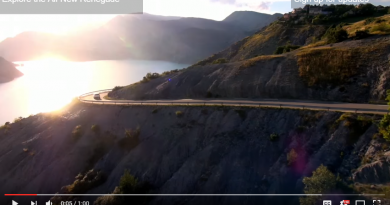In Conversation with Nathan Jones
 – with James Webster –
– with James Webster –Nathan Jones is co-curator of Torque, a literature/performance/technology hybrid who are holding an event Friday 6 June (tonight!) at the Rich Mix (more info here). His previous project, Electric Voice Phenomena, was an experimental literature and new media project, exploring contemporary approaches to sound, voice, technology and writing that was nominated for a 2014 Saboteur Award.
Starting with the basics, introduce us to the team behind Torque [Live] and tell us a little about yourselves…
Nathan Jones: I’m a poet and a curator of performance. My organisation, Mercy, have been producing artworks and poetry projects for about ten years, from our base in Liverpool. I very much believe in new and radical approaches to language, and where language practices reach into different disciplines, particularly in the context now, of digital convergence – where so much media and cultural output is integrally made up of language!
I’m co-curating Torque with Sam Skinner, and we share an interest in how we can articulate some really interesting concepts in contemporary philosophy, science, new media etc. in a performance and art context. Sam has a really diverse selection of skills to draw on. From writing an essay on Brecht, media and war, in the Deutsche Börse photography prize winning book War Primer 2 by Adam Broomberg and Oliver Chanarin, but also he’s really involved in popular culture, having done art direction and animation for music projects with Kaiser Chiefs and Arctic Monkeys. He also worked in galleries and performance venues programming live events. I guess Torque [Live] is where these really disparate skills come together, with my own experience, as a project which sincerely looks for critical engagement – but seeks to elide it with an entertaining cultural ‘happening’. Sam has also produced a special film for the event which uses animation and found footage to bring together and present the many inferences of the project title, which is a form he’s honing as a kind of essay/film hybrid.
The Torque project itself is pretty sprawling. We’ve already run a symposium and workshops with Mencap service users, and we’re going to follow up with a book, published with Link Editions, so the Torque [Live] event on Friday (today), is really that opportunity to spark the concepts together as a live moment.
For this event, we’ve chosen a selection of people who we feel engage directly with the newness being brought to language, by technology and contemporary ideas – and also deliver the kind of emotional and intellectual journey which people deserve on their Friday night. They include people who explicity work in the area of code and poetry, but also people like virtuoso cellist Oliver Coates whose work references language and technology in a more etherial sense – and who bring a lyricism and emotional resonance to the show.
What led to the formation of Torque? And what most interests you about the intersection of writing and technology?
It began with some research I was doing into ‘error’ in relation to thinking, speech glitches, stammers and suchlike. Sam and I were talking about the modes and manners for speaking about cognitive processes, which are newly available because of freshly understood vocabularies around ‘systems’, ‘circuits’ and ‘networks’. In this sense, it is the ideas brought by technologies as metaphors and models for thinking which is one of the central thrusts behind the project.
Language is fascinating in this context, because of the variety of ways people have articulated the emergence and existence of language in relation to the grey matter of the brain. From here, we came across a really beautiful concept by Timothy Crow, who proposed the ‘cerebral torque’, or the imbalance in the left-right split of the brain, to be the force which produces the ‘movement’ of language through listening, comprehension, memory and speech – but which also produces the conditions for schizophrenia.
We’ve taken the notion of ‘twisting’ along with the play on words with ‘talk’, in Torque, to bring together these notions of the movement of language, the brain as a system, and the machinic inferences of the turning-force – and offered it up to artists as a context for their work.
This show leads on from the Saboteur Award-nominated Electronic Voice Phenomena. Can you tell us a little about EVP and what new ideas TORQUE brings to the table?
EVP was a really long project, which built up from 2010, through workshops, events and new commissions, to becoming a touring theatre show which we ran with Penned in the Margins in 2013. This programme – which is still going now, with some awesome online commissions appearing fortnightly on the blog – was focussed on a kind of spiritual ether around electronics and their contact with language and voice. This resulted in a lot of work which was able to simultaneously reflect on the emergence of electronic media around the turn of the century, while also engaging in the new opportunities afforded by digital technology.
With Torque, Sam and I are bringing the idea of cognition to the table, and what we’ve seen happen with this, is a more contemporary, and almost ‘futuristic’ conception of what languages and technologies are. The symposium last month featured films and talks from artists Cecile B Evans and Benedict Drew, along with lectures from cognitive archeologist Lambros Malafouris and philosopher Hannah Proctor to discuss these ideas. The Torque Live event on Friday night is more playful , and I think what is at the centre of it is this motif of the ‘twisting together’ of language, technology and cognition, how one might replace or reflect on the other – or flicker between states.
A few of the works at TORQUE use different ideas of codes and technological languages as a starting point for creative work, what do you think are the rewards and challenges of exploring such (comparatively) new languages?
It’s about understanding what’s happening when we speak about digital culture and the opportunities – not just the threats – that come of it. So many interesting forms of language are emerging which are instinctively understood by us, from new kinds of literacy and slag brought about by a youth culture composed of written communication – I’m thinking of a lad on the bus the other day who was discussing a text he’s received, ‘She sadfaced me’ – right through to the convergence of mind, movement and command in artificial intelligence environments.
Works like the one Alex McLean and Kate Sicchio will present at Torque [Live] demonstrate very the real entwinement of, for example, physical movement, language and code-languages, which will underpin so much of our culture – they use and test the potential of technologies (in this case motion sensing) for new kinds of poetic experience, and Holly Pester‘s revisiting of semaphore messaging say very much about the poetic potential inherent in restrictive forms, for example the interpretation and context dimension of emoticons.
The challenges are that the artworks need to be understood on the terms they propose – their realism which reflects a reality which is emergent, rather than one which people might traditionally expect. Hopefully we get around this – as with so many things – with humour, and by showing how resilient the human condition is in shining through everything laid across it.
On your website your say you’re interested in ‘finding relevant and fresh’ approaches to poetry, what are the different approaches you take? What new poetic ground are you exploring and why?
The Mercy project has always followed what we perceive to be the most interesting and forward thinking approaches – so the poetic ground is very much up to who we work with – whether that be the poets themselves, or the kinds of collaborators who come our way. In general though, I’d say I have a lot of faith in what the field of experimental poetics has to offer cutting edge new media and performance practices, and that is the territory we’re interested in right now.
What can we expect from The Nodes, your fragmented play that proposes ‘a future for speech beyond communication’?
The people who have got the most from The Nodes when we’ve shown it in Liverpool have been the ones who have given themselves up to its proposal of reality, and the inherent flows and thrills of speech. It is really an opportunity for the audience – just as its been for me and Mark Greenwood (co-director) – to experience theatre which is ‘hyper-real’. The actors are very present, more alive than when restricted into communicating a narrative, in this sense. There is a great deal of energy brought be the actors to an unconventional script also, and I think their youthfulness, how it emerges in the context of really quite radical disjunctions and conversational rhythms, is one of the joys of the piece.
What kind of person should come along to TORQUE? Who’s your ideal audience member?
I love it when people come to our shows feeling like it is a generous thing the artists are doing, trusting in the decisions that have been made by the performers and their ability to deliver. The show will offer a really strange emotional and intellectual journey for someone who comes with that frame of mind.
There are a lot of disciplines in the show, so for sure no prior expertise/experience of any field will prepare you fully!




